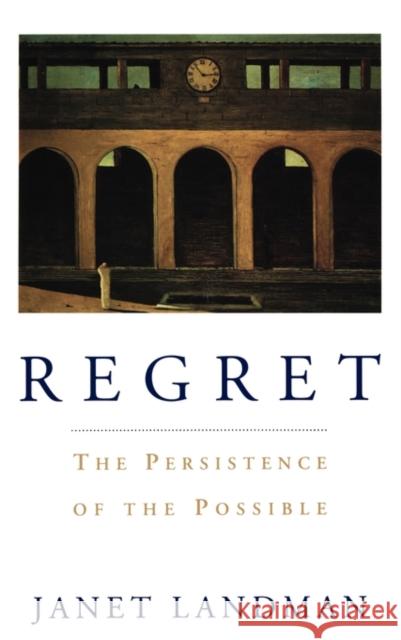Regret: The Persistence of the Possible » książka
Regret: The Persistence of the Possible
ISBN-13: 9780195071788 / Angielski / Twarda / 1993 / 400 str.
"We are a people who do not want to keep much of the past in our heads," Lillian Hellman once wrote. "It is considered unhealthy in America to remember mistakes, neurotic to think about them, psychotic to dwell upon them." Yet who in their lifetime has never regretted a lost love, a missed opportunity, a path not taken? Indeed, regret is perhaps a universal experience, but while poets and novelists have long explored its complexities, very little has been written from a scholarly perspective that examines this emotion. Now, in Regret, Janet Landman takes a lively and perceptive look at this multifaceted phenomenon.
Much as Anthony Storr did in his best-selling Solitude, Landman here provides an insightful anatomy of an emotion, ranging far and wide to illuminate the nature of regret--what it is, how it changes you, how you experience it. She draws on a breathtaking variety of sources, ranging from psychology, economics, philosophy, and anthropology, to classic works of literature. We learn what people regret most--lack of education comes first, followed by employment, marriage, and children--and how regret differs from other emotions, such as remorse, disappointment, sadness, or guilt. In one of the most fascinating sections, Landman examines four "worldviews" of regret--the Romantic, the Tragic, the Comic, and the Ironic--as exemplified in four major novels: Great Expectations, Notes From Underground, The Ambassadors, and Mrs. Dalloway. In Dostoevsky, for instance, regret is a "poison of unfulfilled desires turned inward," destructive, incurable. Though it is common to regard regret as painful and destructive--being "stuck in the past" or "ruled by emotions"--Landman reveals some surprising benefits. At best regret is a dynamic changing process--one can transcend regret, and thus transform the self. In Anne Tyler's Breathing Lessons, for example, we witness how the characters Ira and Maggie Moran find themselves ready to move forward in their relationship only after they have accepted life's limits and losses without resignation or despair.
"It is a good thing," Landman writes, "that the human mind is not limited by what actually exists, but works in such a way that it draws comparisons between what happens and what might have happened. It is in this ability to imagine alternatives, and the capacity to care about the particularities of experience, that we accomplish the task of becoming fully human." For anyone who has ever questioned, experienced, or avoided regret, here is a provocative and challenging look at this enduring emotion.











